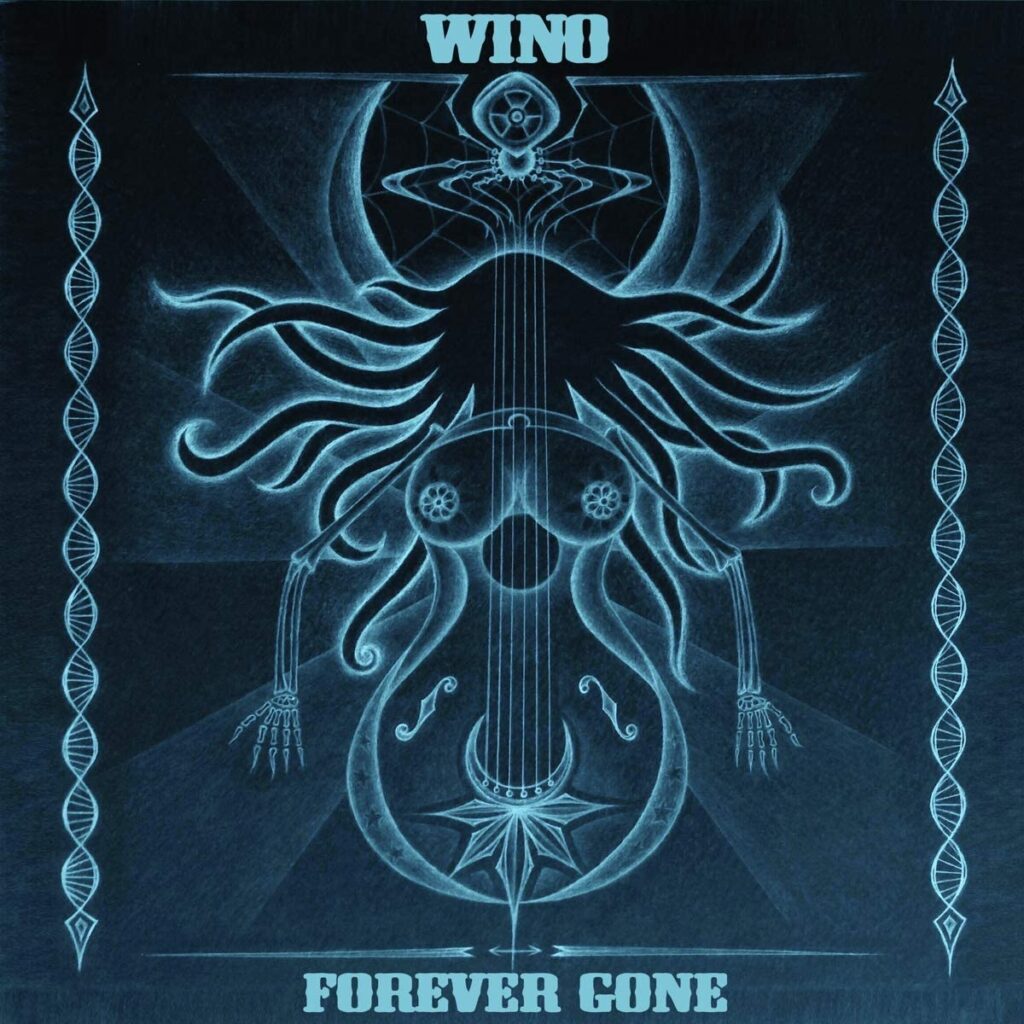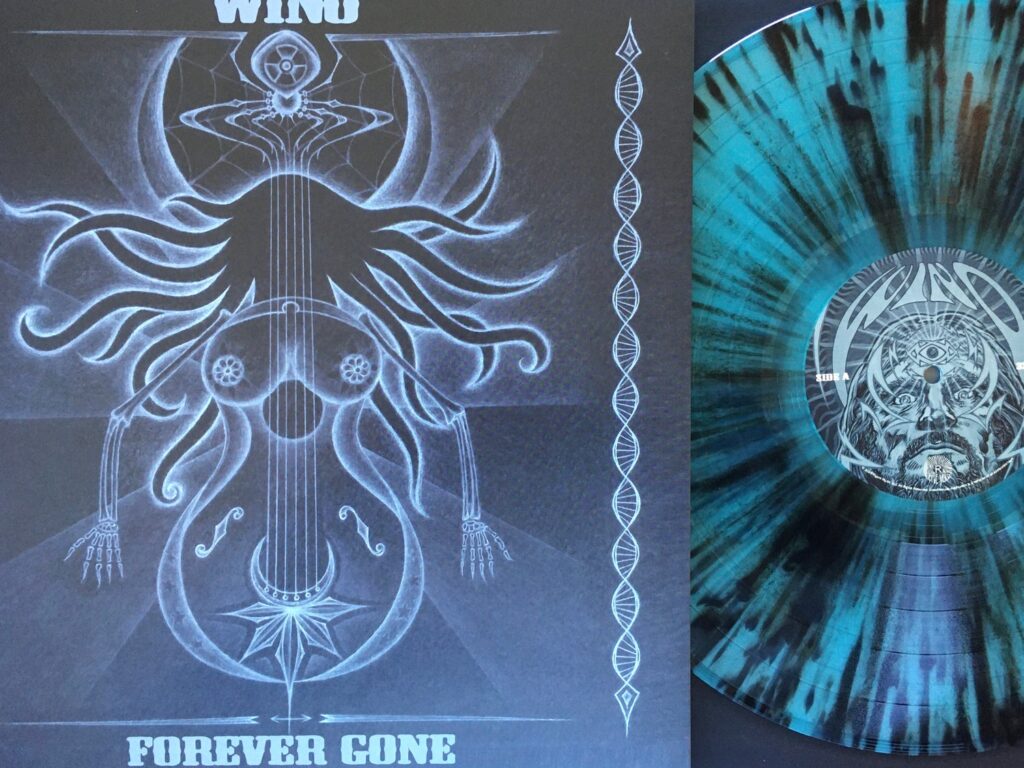
Lovingly referred to as The Godfather of Doom, Scott “Wino” Weinrich is the frontman of Saint Vitus and The Obsessed, not to mention Spirit Caravan, The Hidden Hand and Shrinebuilder. A creative force, responsible for inspiring multiple generations of riff-monsters over a forty-year career, Wino is a living legend and it’s hard to imagine the now-thriving doom scene without his all-pervasive influence. However, whilst Wino is most typically seen standing amidst a stack of howling amps, he has also been seen to step away from the bombast on a pair of solo albums, both of which saw his electric armour stripped in favour of an acoustic approach, albeit one augmented with hazy, psychedelic elements reminiscent of Sabbath’s Planet Caravan. Forever Gone, is Wino’s third such effort, following on from 2010’s Adrift. Produced by Frank Marchand (The Obsessed, Bob Mould), it’s a contemplative set, beautifully produced and with an ambience that makes it feel like some long-lost relic from the early 70s.
The album begins with the scene-setting title track, Wino’s fingers gently pick the strings as a haze of reverb builds beneath. His voice, worn but powerful, speaks of heartache and regret, although he remains defiant and there’s no sense of resignation in the performance. It’s a lovely piece and, as it gently collapses back into the wash of its own reverb, so the subtle harmonies of Taken slowly emerge. With Wino channelling Tom Waits and Mark Lanegan, it’s a tale of loss set to some of the loveliest music to which he has ever put his name. In contrast, The Song’s At The Bottom Of The Bottle is as naked and vulnerable as the subject matter. It sees Wino reduced to just guitar and voice and, with none of the atmospheric elements found on the opening tracks, the song recalls nothing so much as vintage Cat Stevens. Lyrically, it’s a hard song, subtly played, and all the better for the stripped-down approach. A slight chorus effect underpins the folk-infused No Wrong, which recalls the melody of Working Class Hero, whilst the addition of vocal harmonies add depth to the arrangement. There’s even space for a solo, albeit one so drenched in distortion and reverb, it feels like it was beamed in from some long-lost Hendrix album. It leaves the subtle shuffle of Dark Ravine, a track which sensibly adds a touch of percussion, to drive the album to its mid-point.

Opening the second side, Dead Yesterday has a bittersweet, Sabbath vibe, Wino’s voice sounding particularly worn as he sings “I don’t know where we’ll be tomorrow, I don’t care, I don’t care anyway”. Redemption is not far behind, however, and You’re So Fine proves to be acoustic rock ‘n’ roll, punchy and with lead elements scratching the surface. It’s a cool track with a groove so strong you find yourself tapping along before you’re even aware of it. Wino adopts a calmer pace for Crystal Madonna, a piece pared right back to the bone to place the emphasis firmly on the heartfelt performance. It’s a brave artist who sits in front of a microphone with no studio chicanery to hide behind, but the approach is a refreshing one that perfectly suits the music. Lavender And Sage sees wailing, echo-drenched leads sitting just beneath the surface, before the sense of vulnerability returns on the ragged Was Is And Shall Be – a track that plays out like an outtake from Neil Young’s storied archives. Given the naked delivery of much of the album, the visceral take on Joy Division’s Isolation, which rounds things out comes as something of a surprise, although tonally it fits and Wino does much to capture the atmosphere of the original.
Forever Gone is something of a landmark effort, providing the inaugural release of Ripple Music’s new “Blood and Strings: The Ripple Acoustic” 12” vinyl series. As one of the few labels still fighting the corner for artists who play because it’s all they know how to do, the pairing of Ripple and Wino is an obvious one, and Wino has turned in a gorgeous album with which to launch the label’s new endeavour. Whilst the familiar Sabbath vibe is present and correct, what stands out is the depth and variety of Wino’s influences and the record as a whole feels strangely timeless, largely thanks to the immense presence of his delivery. For much of the album it feels like Wino is performing this raw and intimate set of songs just for you, and this is something greatly aided by Frank Marchand’s deft and sensitive production. Put simply, Forever Gone is a beautiful work from an enduring artist. An album to treasure, dim the lights, free yourself from distractions and let yourself drift away for an hour with this sublime set of songs. 9.5



